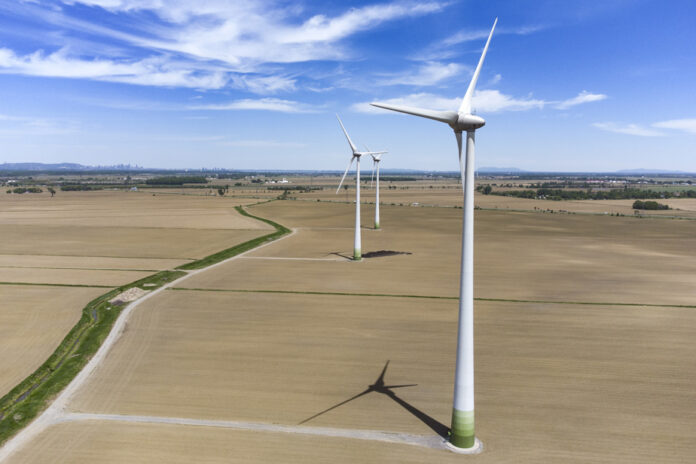The door is not closed to a nationalization of the wind industry while Quebec intends to analyze the question, but the Minister of Energy and the Economy, Pierre Fitzgibbon, affirms that his preference leans towards the private sector.
The Minister was asked why the wind power industry in Quebec was not developed by a public company as was the case for the large dams of Hydro-Quebec, during an event relating to the sector of the energy organized by the newspaper Les Affaires on Tuesday.
“That question is currently being studied,” confirms the minister in response to a member of the audience. Me personally, I think that the private sector is better than the State. This is my personal opinion. »
The Ministry of Energy is consulting on the framework and development of clean energy. The goal is to table a bill this fall.
Hydro-Québec calls for tenders to procure blocks of renewable energy. The Crown corporation then selects the projects proposed by the private sector that best meet its criteria.
Using its production activities, Hydro-Québec can carry out certain projects. In March, the state-owned company chose its own 159-megawatt project from among seven successful bidders in two tenders totaling 1,303.36 megawatts of installed capacity.
If the door is open “because at this time, we want to listen to people”, Mr. Fitzgibbon specifies, in a press scrum, that the current situation would not lend itself to a nationalization of the Quebec wind industry.
“We’re running out of electricity. Can Quebec be enough for everything? No. The private sector has a role to play. We are open to discussion, but [the current way of proceeding] is not bad either. »
The possibility of allowing a greater number of companies to produce their own energy is also being considered. “You have to ask yourself the question. I cannot answer because we are consulting, but we need energy. »
In any case, Quebec would have its say. “We must not go to the other side (too much liberalization) where everyone would do anything,” assures the minister.
The debate over the nationalization of the wind industry is not new in Quebec. In 2003, the Charest government decided to entrust the development of the wind power sector to the private sector.
Parti Québécois activists had toyed with the idea of nationalizing the sector, but the proposal had been successively rejected by leaders André Boisclair and Pauline Marois. During the last campaign, Québec solidaire promised to “nationalize under regional control all industries producing renewable energies”.
Mr. Fitzgibbon, however, finds it difficult to see how the private sector could take care of the construction of large dams in Quebec. “The expertise of dams is Hydro-Québec. This is the value we have in Quebec. I wouldn’t see why we would open this. There are private dams that exist, which we can continue to supply or increase their capacity. »
The private sector could play a role for smaller dams, reacts the president and chief executive of the energy producer Innergex, Michel Letellier, later in the day, on the sidelines of a conference he gave as part of of the same event.
The Longueuil company took its first steps with small hydroelectric power stations in the early 1990s. For several years, the wind power sector has been the sector where it obtains its new contracts in Quebec.
New hydroelectric projects could, however, be entrusted to the private sector in Quebec, if changes are made to the law after government consultations, according to Mr. Letellier.
“Hydro-Québec has always had a monopoly on all hydroelectric potential of 50 megawatts and more,” he said in a scrum. […] Now, today, with the costs that have increased, would Hydro-Québec be ready to raise the bar or even to rethink, to give back to the private sector power plants of more than 50 MW (to make them the maintenance and increase their production capacity)? »
Developing projects of less than 50 MW would be difficult in the current context, acknowledges Mr. Letellier. “There are not many [sites where this would be possible]. Virgin sites, there is still a level of reluctance. We have people who go kayaking, canoeing. With ecotourism, this is an issue. I’m not saying that it won’t happen, but inevitably, there is an integration challenge. »
Smaller plants become less attractive to Innergex, which has a net installed capacity of nearly 4,000 MW in Canada, the United States, France and Chile. “Take our resources to go and develop a small dam, our niche has become a little bit bigger, but there may be local entrepreneurs who could be very happy, but they will need a subsidy, there is still a social benefit to maintain these structures. »















